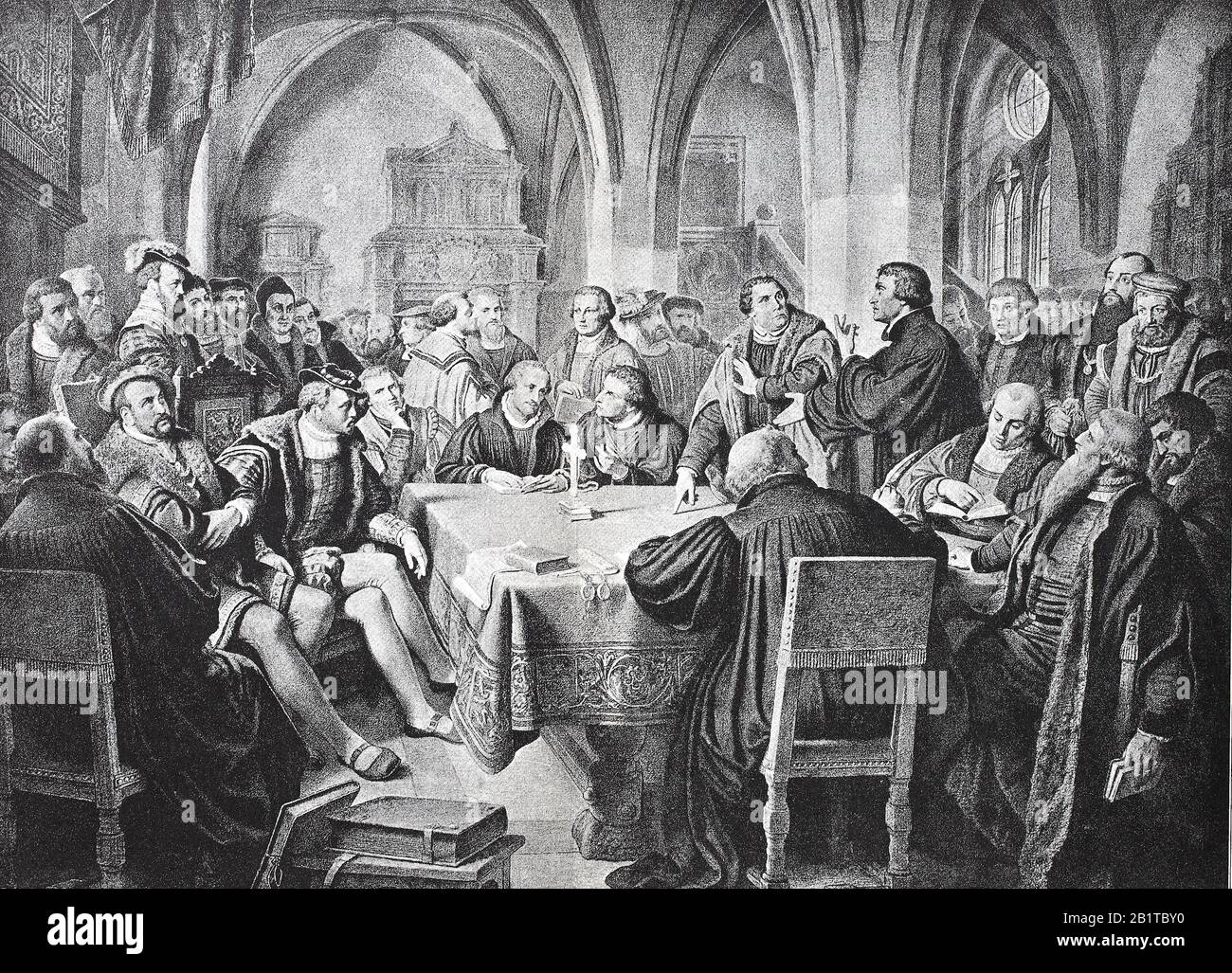
Thus, the colloquy remains a subject of more than historical interest to this day. Significantly, the religious discussions proved that Lutheran and Reformed theologians could compromise and reach agreement under favorable circumstances. Hence, failing to create an all-Protestant alliance, Hesse, Strasbourg, Zurich, and Basel drew up the Marburg Sketch of an Alliance to serve as the basis for one in the future. Elector John sent Eberhard von der Tann to Marburg with instructions to prevent an agreement. The Lutheran princes of Electoral Saxony and Brandenburg-Ansbach, however, who were opposed to a defensive Protestant alliance with the Lower German and German-speaking Swiss cities, schemed to sabotage the Marburg Colloquy. From the start, the political desire for a defensive alliance had driven demands for a colloquy and religious agreement because Luther insisted that a defensive alliance of Protestants must hold the same religious views. While the religious discussions continued, some of the politicians began separate political discussions in order to create a defensive Protestant alliance against possible hostile actions by their Roman Catholic opponents. Hence, on the fifteenth article, concerning the Lord's Supper, they stated their differences, but agreed not to continue to attack one another. Zwingli held that Christ's words, "this is my body," mean 'this signifies my body'. Zwingli, however, could not accept any understanding of the Presence other than a symbolic one. The theologians all agreed to articles on original sin, the Word of God, grace, baptism, infant baptism, and confession, and Luther was willing to compromise on his wording concerning the Real Presence of Christ in the Sacrament of the Altar. Landgrave Philipp's strategy of using small group meetings as well as the large disputation format did produce a compromise agreement called the fifteen articles of faith, also known as the Marburg Articles. There were also delegates from Nuremberg, Augsburg, and Schw äbisch-Hall. Martin Luther (1483 –1547) and Philipp Melanchthon (1487 –1560), both from Wittenberg in Electoral Saxony, were the main speakers for the Lutheran cause, while Huldrych Zwingli (1484 –1531) from Zurich and John Oecolampadius (1482 –1531) from Basel represented the Zwinglian side. After establishing many areas of agreement, the religious discussions focused on the nature of the Lord's Supper, the main item of disagreement between the feuding theologians.

The Hessian landgrave, or prince, Philipp the Magnanimous (1504 –1567), organized the colloquy, which was ended prematurely by the threatening epidemic known as the English sweats (possibly chronic fatigue syndrome).
The marburg colloquy series#
The Colloquy of Marburg (1 October to 5 October 1529) was a series of meetings designed to end the religious quarrel between the Lutheran and Zwinglian theologians and to make a political agreement between their Protestant states possible.


 0 kommentar(er)
0 kommentar(er)
